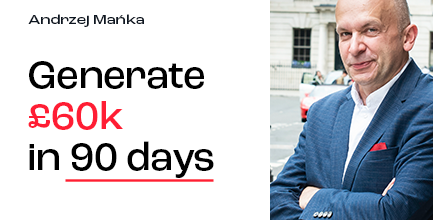How to earn more and how to have more money. Part 2 of 3


Budgeting is not usually seen as a very exciting activity.
However, you would be surprised to know that it is not true! Once you get a hang of budgeting, it actually feels like a very creative process.
Budgeting is also incredibly useful, it is the beginning and foundation of your financial success, yet very few of us properly manage our household budget.
This is why very few people, who properly prepare their household budgets have been able to achieve financial independence.
A budget is a kind of litmus test for your core values. My assertion is that our values determine how we spend money, what we spend for, and also how we generate income. Money is ultimately a neutral tool and our values determine how we use this tool.
Are you able to take out the time regularly to record a spending inventory, plan your finances, and control your cash flow? Do you think you can manage your finances without it too?
Let me give you two examples that I hope will help you understand the essence of budgeting.
Can you imagine driving a car without a speedometer, fuel gauge, oil gauge, and temperature gauge, or tire pressure level? The dashboard in your car is like a command centre that helps you make decisions based on accurate data. Similarly, your budget is like a command centre with all the relevant data of your finances to help you make informed financial decisions that are backed by facts.
If you want to run a marathon or achieve another goal like losing weight or building muscles, you need to rely on accurate data to see how well you have to prepare and what efforts are needed. I use fitness applications on my cell phone that, among other things, show the distance I’ve walked or run, along with my time or speed.
Then there are other important things like diet, calories, rest, recovery, etc. As the management guru Peter Drucker rightly put it,“you can’t manage what you can’t measure.” You need to take a similar, meticulous, methodical, and creative approach to your finances.
Dive into your expenses, receipts, bank statements, loan interest, and any other document that has to do with your finances for an hour a week, and maybe longer for a thorough analysis of each.
Your budget should be at least a year long. That way, you will have the right perspective and you will be able to include much more data than you can monthly to see the trend. You will be able to see clearly that each month has a different structure of expenses and sometimes income (our finances look different at Christmas, vacations, around important anniversaries, bonuses, etc.).
I have prepared a convenient template for you to prepare your personal or family budget. You can access it here.
You have to keep in mind some other important points:
- Don’t use general and vague categories like food or clothing. Write down every expense in the appropriate category with proper details.
- Be honest with yourself! Don’t pretend, hide, underestimate, or skip anything.
If this is your first time preparing a budget, be ready for it to take a few hours. After initial attempts, it will be much easier and faster, but preparing a budget for the first time can be time-consuming. Remember, it will pay off a hundred times over!
When your budget is ready, what conclusions do you come to?
Do you have a deficit or a surplus?
Or maybe your earnings and expenses are in perfect balance?
What decisions will you make now?
Will there be cuts?
Do you need to earn more?
Should you save more?
How to have more money with the right mindset and perspective?
Why is your net worth important and how do you calculate it?
There are many ways to measure personal wealth, and the most popular are usually the ones that are mostly useless.
Most of us believe that the more we own, the richer we are. And this possession should be visible, especially to others. In practice, this means that we confuse two financial parameters:
I am rich.
I look rich.
This is why we have so much trouble with debt, maintaining a lifestyle to be accepted in society, to show the things we own, social media has further made us pretentious to show off our materialistic worth, impress others with the things we own.
But there is one useful tool that allows us to measure our wealth according to the principles of financial health and the rules of effective personal finance management. That tool is your net worth.
Net worth is your assets minus your liabilities.
What are assets? These are things you own that have real value if you cash them out, such as your house, car, land, jewelry, stocks, patents, intellectual property, etc.
What are liabilities? These are your debts, loans, taxes, and anything else that you owe.
What is the easiest way to estimate your net worth? Imagine you have to sell everything you own, everything! How much money would you have left after selling all your assets and paying off all your debts?
Before you start calculating your net worth by using your net worth calculator, please remember to calculate your net worth as realistically as possible, i.e. according to current market prices. Sometimes what holds sentimental value for us, often due to our emotional attachment, may not be of any particular value to potential buyers.
What are the additional benefits of using net worth calculation in your life? You begin to understand the pitfalls of a consumerist lifestyle and develop financial intelligence.
How to have more money through increased productivity?
KPI is an acronym for Key Performance Indicators.
Imagine you work in sales. Your annual goal is 100K USD. KPI’s will be the elements of your job which will take you towards your goal. Here is what they might look like:
Making 100 phone calls a day.
Sending 4 offers per day.
Scheduling 1 appointment per week.
Finalizing 1 sale per month with an average value of 10K.
These can be your KPIs, meaning, if you make 100 phone calls and send out 4 offers each day, have at least one meeting with a client per week, and complete one sale per month, you will be well on your way towards reaching your annual sales goal.
How can you use this idea in personal finance?
Your KPIs can be the regular daily and weekly savings you have to do to reach your planned financial goal. They could also be the extra money you have to earn each month or the return on investment you have to make that quarter.
Remember to take advantage of crises and setbacks to grow intensely
In late 2019 and early 2020, a major challenge fell upon the world, Coronavirus pandemic. In December 2019, it seemed to be just a local problem of China, but by March 2020, most countries around the world began announcing the closure of businesses, schools, public and cultural institutions to prevent the virus from spreading.
As of June 2021, even though most of the restrictions have already been lifted, it is still difficult to talk about complete freedom to travel, work in an office (if one likes and values it) or freedom to do business in certain industries.
These restrictions have thrown the global economy into serious trouble.
If you plan your finances and your business, no crisis, no matter how unforeseen it may be, like the Coronavirus, can affect you negatively. After all, crisis preparedness is always an essential part of any plan.
However, if you are not yet planning your life and finances then you should start doing it now regularly and consistently to save yourself from a personal financial crisis.
And prepare now for the next crisis! Here is a list of 12 ways to deal with the current crisis.
Plan, always plan! As General Eisenhower used to say, ‘’Plans are nothing, but planning is everything.’’
Negotiate (contracts, prices, terms of cooperation, etc.), develop communication skills.
Look for savings and cutting costs.
Find new markets and new customers, or find a new job, reinvent yourself.
Use online tools and platforms to grow money.
Be flexible with your pricing, test, experiment.
Think positively, avoid complaining at all costs, dwelling on past mistakes, and being stuck with negative emotions.
Develop procedures (for emergencies, crises, etc.)
Be productive and introduce proper order and rhythm to your day.
Find like-minded partners to network and grow your circle.
Remember that a crisis is a perfectly natural and normal thing.
Be prepared for the next crisis!
And remember that what generally happens in your life is largely up to you, not to a crisis or an opportunity. As Henry Ford said, “If you think you can, you’re right. If you think you can’t, you’re right, too.”
Optimize your taxes
What is tax?
It is a compulsory contribution you have to pay to state revenue. It concerns pretty much everyone, both workers and businesses. In general, the purpose of taxes is to fund different kinds of public expenditures, like schools, hospitals, parks, state benefits, defence and culture.
There are a few types of taxes and here are a few common examples:
Income Tax – a percentage of someone’s earnings filed to a government
Corporate Tax – a percentage of corporate profits taken as tax by the government
Value-added tax – taxes levied on certain goods and services
Property Tax – calculated on the value of property
Tariff – taxes on imported goods
National Insurance – paid by workers and employers for funding state benefits
There two mains tax system – progressive and flat. The progressive tax depends on the level of individuals incomes. The higher the income, the bigger the percentage of tax.
There are three income tax bands if you live in England, Wales or Northern Ireland –the 20% basic rate, the 40% higher rate and the 45% additional rate. If you live in Scotland, there are five income tax bands – the starter rate of 19%, the 20% basic rate, the 21% intermediate rate, the 41% higher rate and the 46% additional rate.
In the flat tax system, everyone pays the same tax rate regardless of how much they earn.
Both systems have advantages and disadvantages. It has been a heated debate on this subject for decades. If you want to explore this topic more you can read this article.
You are, however, free of paying taxes if you earn less than £12,500. This is the so-called ‘personal allowance’; the amount you can generate without paying income tax.
You should also be aware of a few more taxes:
Tax relief on pension contributions
Remember your deadlines! This is an essential matter regarding taxes. If you submit a self-assessment tax return, the deadline for submitting it is 31 January 2020. This is for the 2018/19 tax year, which ended on 5 April 2019. If you want to check your Income Tax for the current year use this website.
You can use these apps to accelerate the process of tax planning:
HMRC Tax Calculator for the UK
Best UK tax software 2019: easily manage tax returns for HMRC
If you are self-employed please read this article.
It’s worth exploring the topic further. Here is the first step – A complete guide to the UK tax system.
What you can do to pay less tax?
Before we discuss seven examples of tax relief, let us start with two fundamental steps that everyone should consider in order to benefit from tax relief.
Step 1 – Plan your finances and budget regularly. This way, you will be able to anticipate potential eventualities quite easily and know how to prepare for them. If you already anticipate today that you may pay more tax next year due to a profitable investment or an expected raise at work, you now have considerable leeway to take action.
Maybe it is time for a renovation? Or a gift to loved ones that was put off for years or an education expense?
Planning develops your financial imagination.
Step 2: Always check current tax law. Educate yourself regularly on your finances. The tax optimization examples in this section of the article are current from 2021. However, laws change and evolve frequently, so always look at current information before making any decisions.
In the case of taxes, you can simply visit the government website or the blog of a reputed accounting firm.
You’ve probably already noticed that taxes are an incredibly broad topic, we have linked each point to an article that will help you explore the tax aspect you are interested in.
And here are seven simple and very effective ways to pay fewer taxes.
Take advantage of the tax-free amount
Take advantage of tax breaks
Put money into an Retirement Account
Don’t pay tax before your 26th birthday
Check if it is not better to pay taxes with your spouse
Rent an apartment
Set up a company – the more money someone earns, the more it pays to set up a company
Know the difference between tax evasion and tax optimization – avoiding paying too much tax
Earn more by working as an employee
Whether you’re an entrepreneur or an employee, you need to do your job well.
I know, it sounds cliché, but it’s worth realizing a few simple truths in life from time to time.
The mere fact that you call yourself an investor or a businessman, or the mere discovery that a job is a rat race and business and investing lead to financial independence does not necessarily have any effect yet.
In short, by doing the right thing, you can achieve financial freedom by working at a job, while poorly managed business and investment projects will only lead you into debt and frustration.
There are some professions, such as teachers, artists, scientists, or writers, that generally require you to work for an institution permanently or through self-employment, which is effectively the same work model.
After all, not everyone should start a business and invest, we also need great employees, and this is a fact. Employees at various levels can also achieve financial independence, or at least put aside an amount of money to lead a life free from daily financial worries.
I certainly share the view of Kiyosaki and other business theorists that owning a business (or rather businesses) and investing is the best path to financial freedom. But observing what’s going on around us, it is very common for small business owners to become miserable, while employees who put in the effort and get promoted regularly do quite well financially.
Whether you’re an entrepreneur or an employee, the same financial planning rules apply to you. Here are some of the most important ones:
Budgeting your income and expenses
Saving and investing regularly
Consciously choosing a lifestyle that suits your goals
Strict implementation of financial plans and assumptions (especially when it comes to consumption and expenses)
Ongoing financial and business education
Continuous development of the “self-discipline muscle”.
Start by planning your first million (or just significantly more money than you are earning so far).
And one more very important point, it is worth appreciating a freelance job because of the transferable skills you can learn. And later use them in your business, if that is your plan.
Project management
Art of communication
Team management
Punctuality
Resistance to stress
Responsibility
Problem-solving
Sales skills
Theoretical models like Robert Kiyosaki’s Cash Flow Quadrant are good, helpful, and inspiring. But real-life is generally much more complex, so you need to consider many more factors when making decisions about your job, business, investment, and financial goals.
Therefore, make smart choices, be bold and creative, but based on rational approach and facts. If you have a job, try to learn as much as you can out of it before you start working on your own.
Andrzej Manka
Part one of the article about earning money can be found here.


